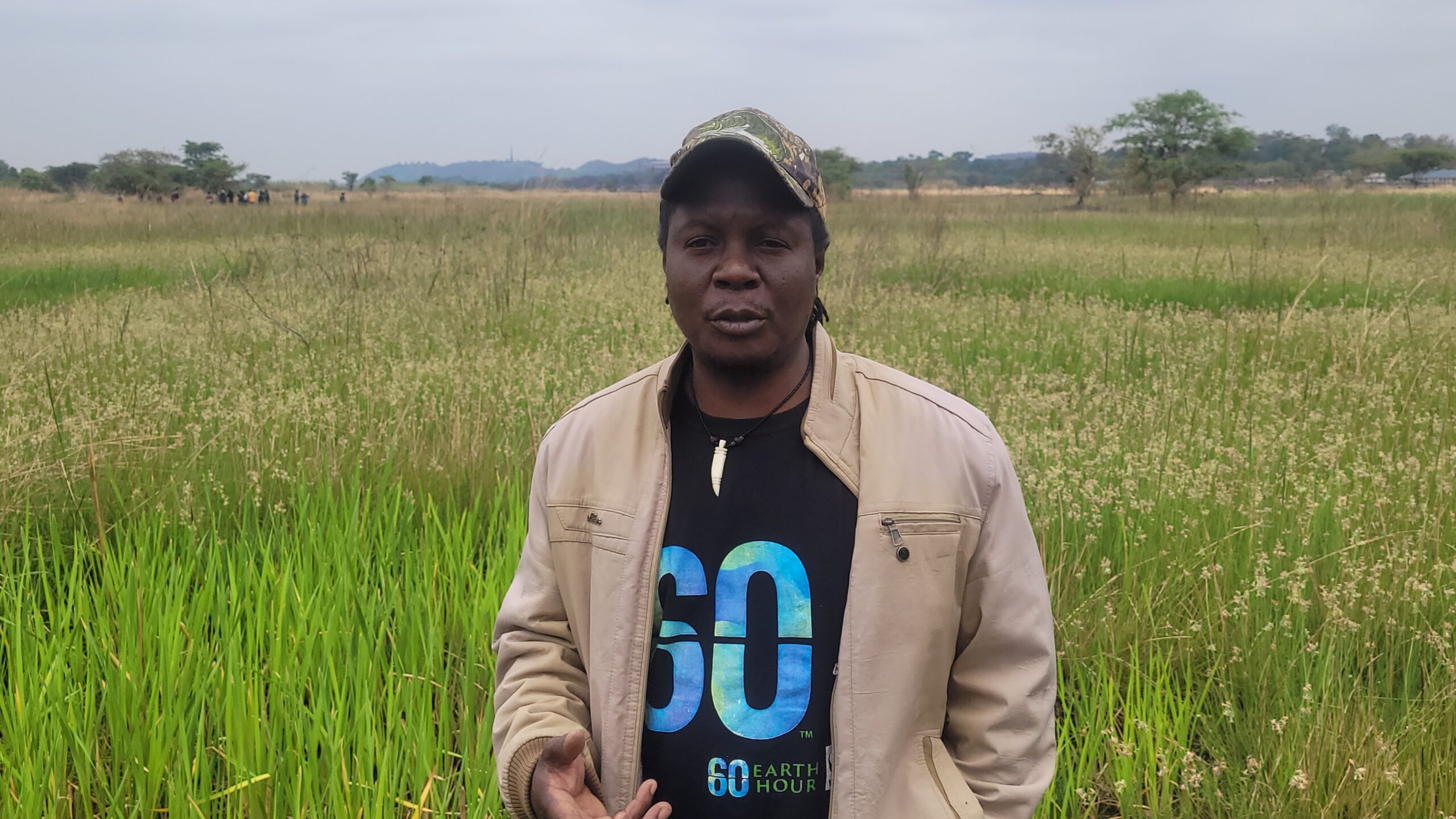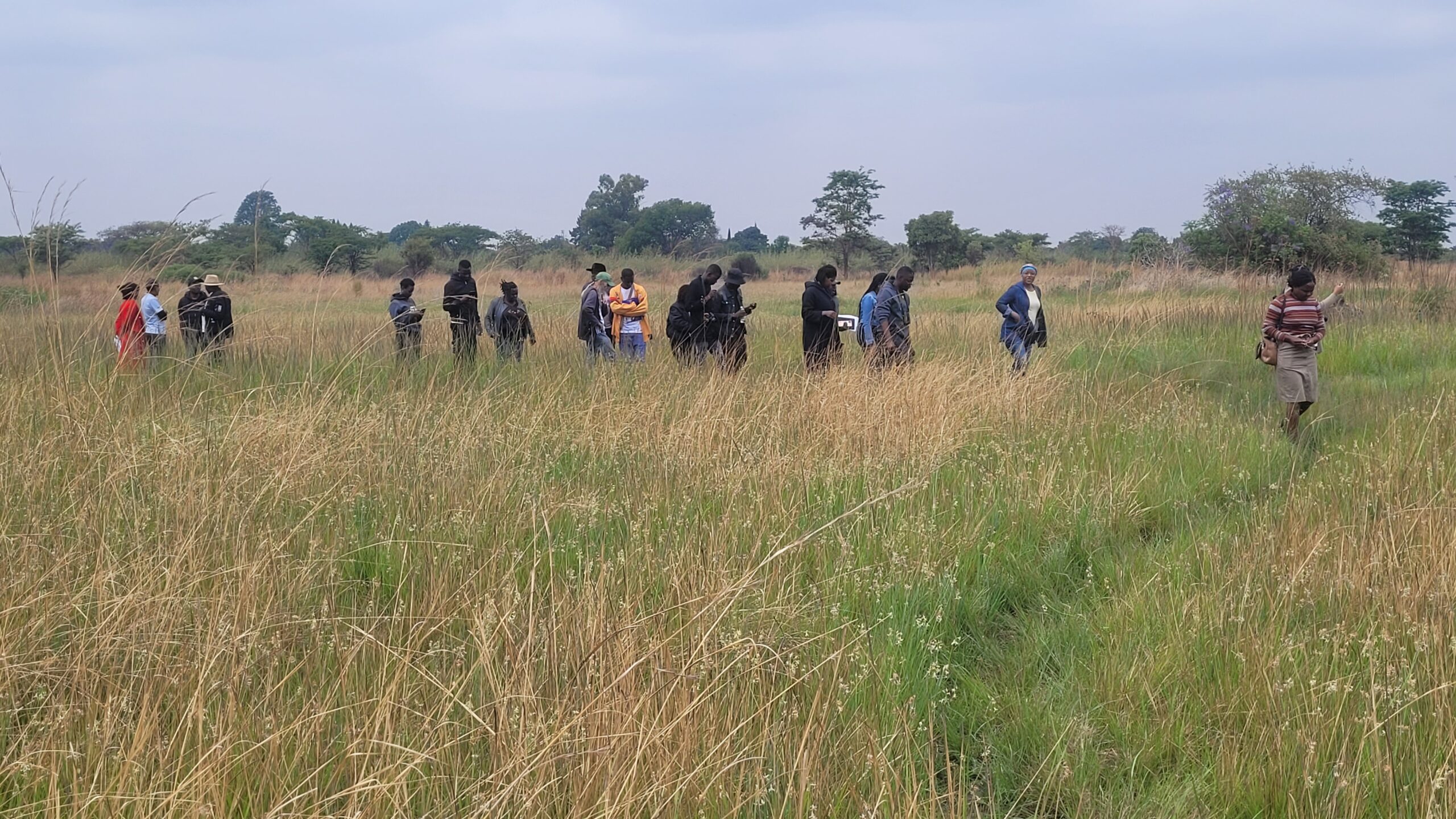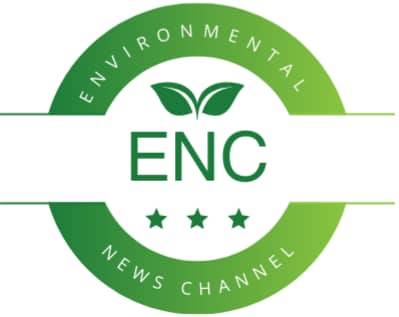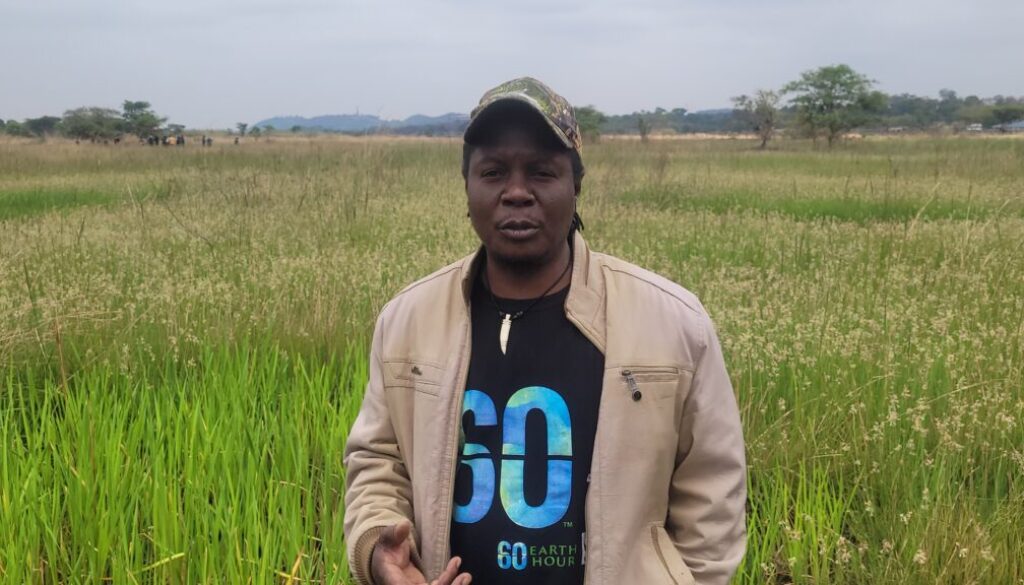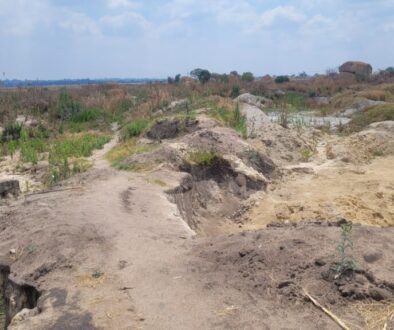Community Stewardship as a model for wetlands protection: A Conservation Officer’s Journey
Edgar Gweshe
Community stewardship has proved to be a viable option towards wetlands protection in Harare.
This is in light of the various threats to Harare’s headwater wetlands, which serve as water sources for the capital,
The wetlands are under threat due to a number of factors that include unplanned developments, urban farming, pollution and sand mining among other factors.
In light of the continued threats to the wetlands, various communities have adopted the community stewardship model to ensure community involvement in the protection of the water sources.
The communities continue to work with various duty bearers and have recorded varying levels of success in their efforts to protect the wetlands.
In some cases, corruption and abuse of political office have turned to override the efforts of these communities.
The Environmental News Channel had an interview with Jimmy Muropa, a Conversation Officer who has over the years been actively involved in the protection of Monavale Vlei- an internationally recognised wetland in Harare- on the importance of community stewardship as a model to protect wetlands.
Muropa, a Conservation Officer with the Conversation Society of Monavale (COSMO) outlined his journey, dating back to 2005 and his passion for wetlands protection.
COSMO was instrumental in Zimbabwe joining the Ramsar Convention and with Monavale Vlei being declared a Ramsar site. Between 2005-7, a Wetland Taskforce and a management plan for Monavale Vlei was developed to manage the wetland whose core area is 34 hectares.
“I started being a Conservation Officer in 2005 and the journey has been amazing and has been characterised by learning and in turn imparting that knowledge to various communities including school kids and we have also been engaging residents on education and awareness campaigns . Protecting wetlands is important because these wetlands are our water sources and have many other important functions including climate change mitigation and water purification.
Community stewardship in wetlands protection is very important in that it provides the eyes and ears on the ground and enables immediate action to be taken if any threats or challenges are detected. This has been a success in Monavale as a committee that specifically deals with the wetland has readily engaged with relevant authorities in dealing with issues that might arise.
Firstly, community involvement in Monavale vlei has been hugely successful, thanks to residents’ deep understanding of wetland functions and importance. Residents volunteered themselves to undertake various tasks thus collectively managing the wetland. Threats to the integrity of Monavale have been recorded but the community has remained steadfast in its efforts to protect this internationally recognised wetland.
Notable successes were recorded in education and awareness , engaging authorities and networking with like minded partners, wetland lobbying and advocacy and good wetland management practices thus ,making Monavale vlei a very good wetland model,” said Muropa.
Monavale Vlei is among the three internationally recognised wetlands in Harare under the Ramsar Convention on the protection of wetlands. Other Ramsar sites in Harare include Cleveland Dam and Lake Chivero.
Over the past years, COSMO has engaged with various stakeholders as part of efforts to save Monavale Vlei.
These include community work, education and awareness, alien species removal, biodiversity awareness, livelihood enhancement and engagement with authorities.
As part of their efforts, COSMO has continued to lobby for full implementation of the Ramsar Convention in terms of the wise use of wetlands for sustainable urban development as well as the need to mainstream wetlands protection in town planning processes.
The organisation has also recommended Harare as a potential candidate for Ramsar Wetland City accreditation.
Last week, the Harare Wetlands Trust and Birdlife Zimbabwe organised a media tour of Monavale Vlei as part of efforts to raise awareness on the importance of wetlands in Harare and to up efforts on the protection of the water sources.
A representative from the Harare Wetlands Trust, Julia Pierrini highlighted the importance of wetlands in terms of water provision and bemoaned that Harare was headed for a major disaster due to the continued destruction of its water sources.
She called for an all stakeholders approach to stop the continued degradation of wetlands in Harare which she said poses a huge threat to the sustainable development of the city.
During a workshop organised by Harare Wetlands Trust and Birdlife Zimbabwe in September, the Provincial Environmental Manager for the Environmental Management Agency (EMA), Leon Mutungamiri said the agency was prepared to work with various communities to protect wetlands in and around Harare. He emphasised the importance of community stewardship as a model to protect wetlands.
Zimbabwe is set to host the Ramsar Convention’s 15th Conference of Parties (COP 15) in Victoria Falls in July 2025 and stakeholders have highlighted that this high-profile event offers a pivotal opportunity to advance both national and regional commitments to wetlands and biodiversity conservation.
The country has seven wetlands recognised under the Ramsar Convention on the protection of wetlands.
These are Monavale Vlei, Lake Chivero, Cleveland Dam, Chinhoyi Caves Recreational Park, Victoria Falls National Park, Driefontein Grasslands and Mana Pools National Park.
